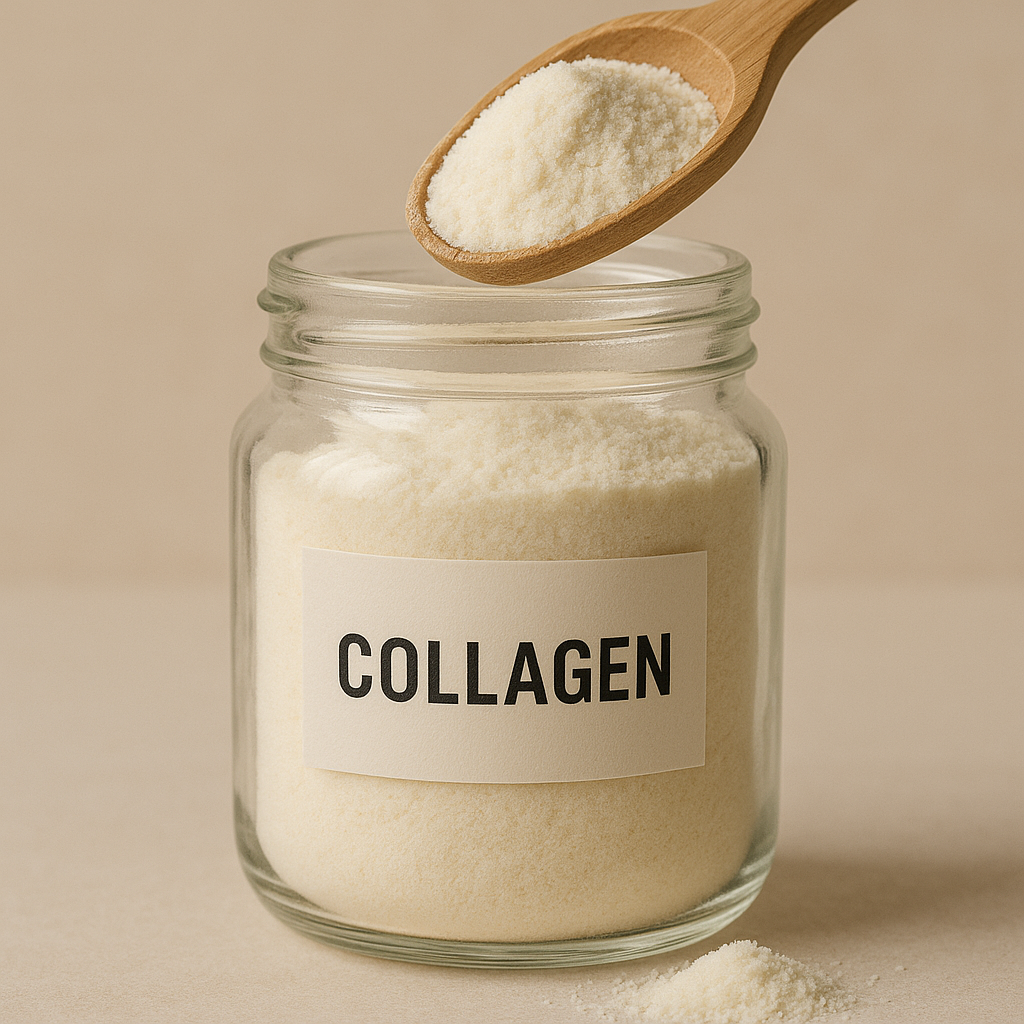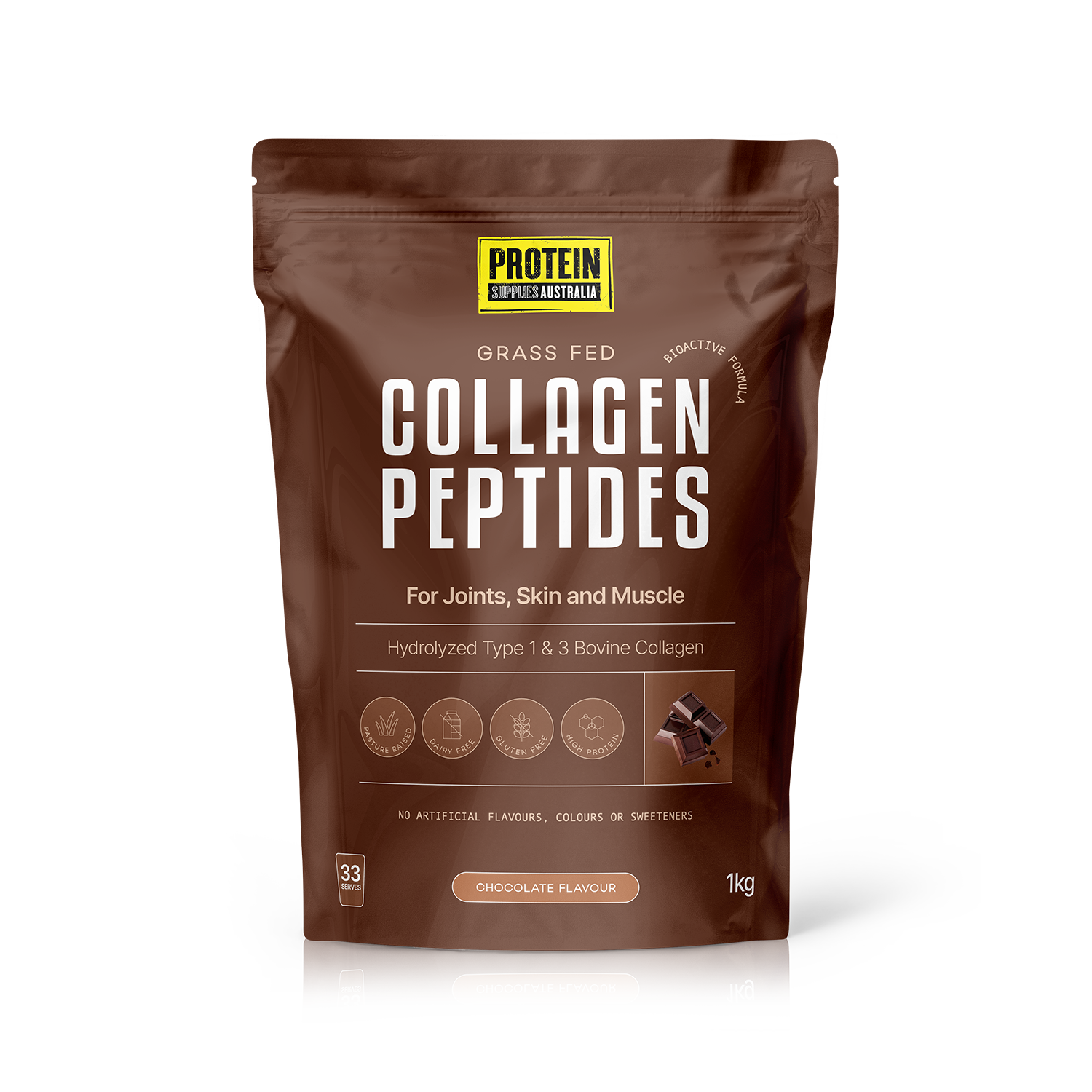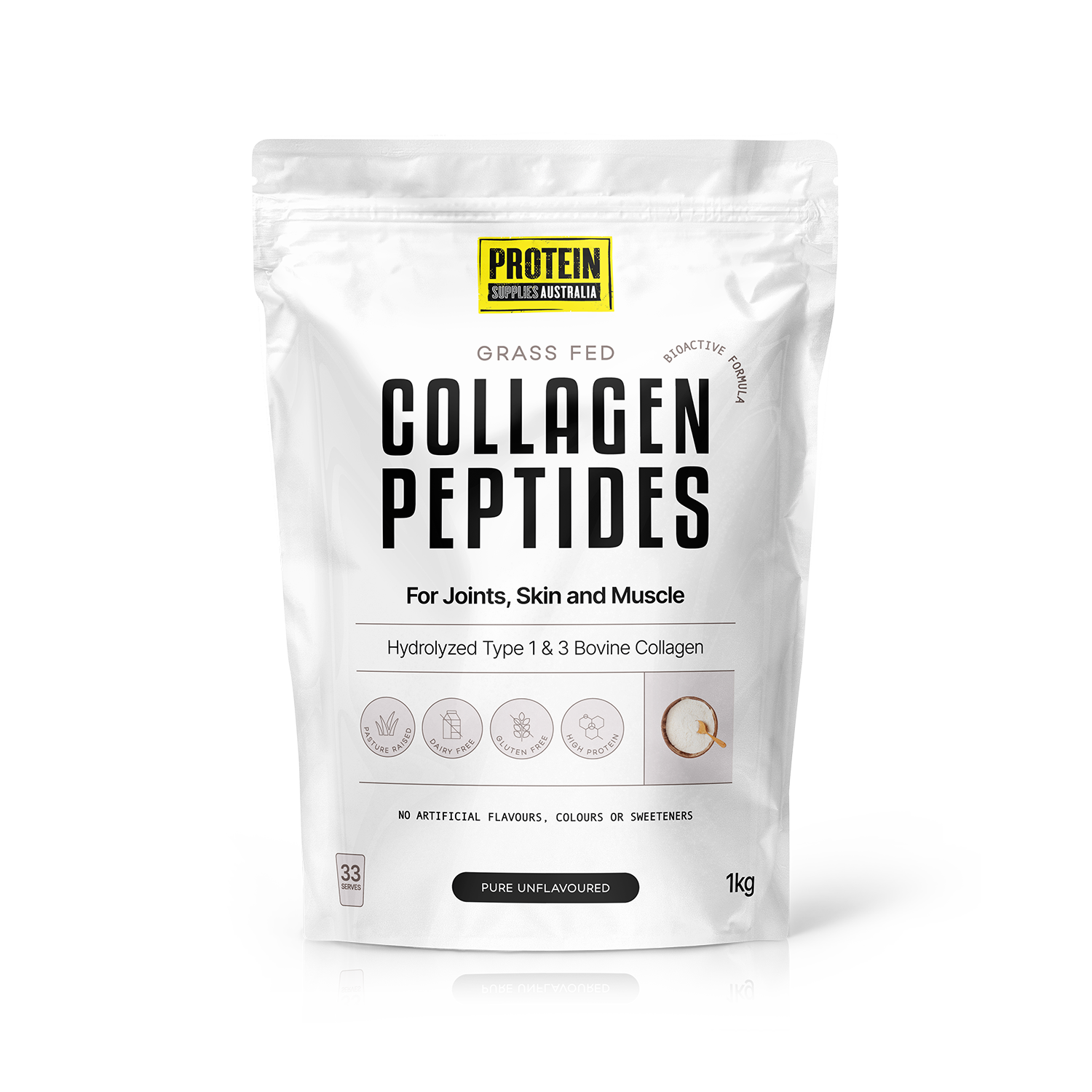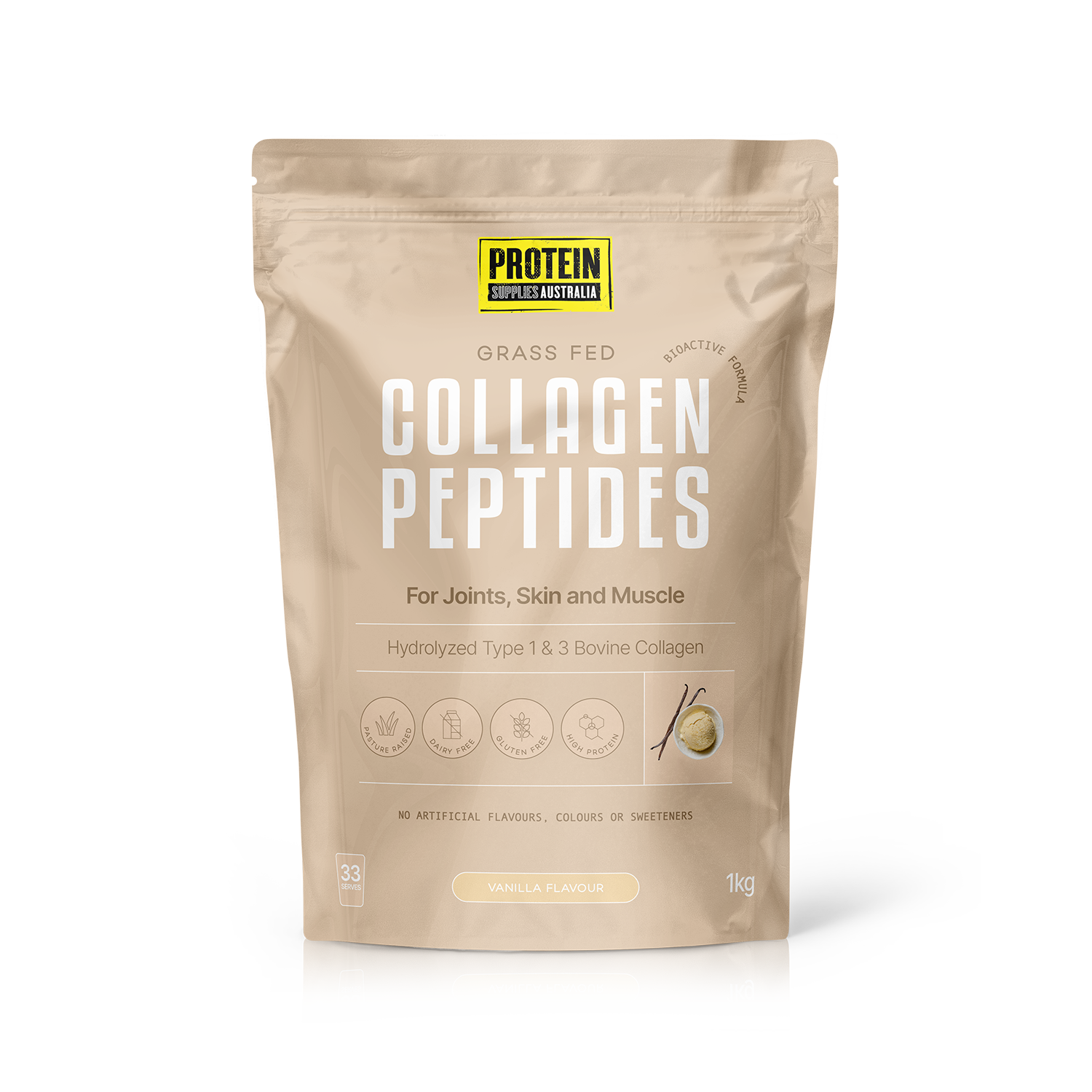In today’s health and wellness market, the terms hydrolyzed collagen vs collagen peptides often appear interchangeably on labels, leaving many wondering: is there a real difference?
And more importantly, how can you choose the right collagen supplement for your body’s needs — whether for skin health, joint pain, or muscle mass?
Let's unpack it.
Introduction to Collagen
Collagen is the most abundant protein in the human body, accounting for approximately 25-35% of all proteins. This vital protein plays a crucial role in maintaining skin health, supporting connective tissues, and ensuring the overall structural integrity of the body.
As we age, our body produces less collagen, leading to visible signs of aging such as wrinkles and sagging skin, as well as joint pain and other health issues. This decline in collagen production is a natural part of the aging process, but it can be mitigated with the help of collagen supplements.
Collagen peptides and hydrolyzed collagen have gained significant popularity in recent years due to their potential benefits in replenishing collagen levels. These supplements are known to improve skin elasticity, reduce joint pain, and support overall skin health.
By incorporating collagen supplements into your daily routine, you can help counteract the effects of aging and maintain a youthful, vibrant appearance.
Hydrolyzed Collagen vs Collagen Peptides: Are They Different?
Simply put, there is no difference between hydrolyzed collagen and collagen peptides. Both refer to collagen that has undergone enzymatic hydrolysis, a process that breaks collagen proteins down into smaller, more digestible fragments called bioactive peptides.
Collagen helps by being more easily absorbed due to the hydrolysis process, which enhances the effectiveness of collagen protein supplements and ensures maximum protein absorption.
You may also encounter the term collagen hydrolysate — again, just another name for the same product. The variety in terminology is mainly due to marketing choices made by supplement companies, but the key function remains identical: providing your body with readily absorbable amino acids.
In fact, hydrolysis helps reduce the size of collagen molecules dramatically — from around 300,000 Daltons to about 10,000 Daltons — improving bioavailability for faster absorption through your stomach pores.
Understanding Collagen: The Body’s Most Abundant Protein
Collagen is the most abundant protein in the human body, accounting for nearly 30% of total body protein. It forms the scaffolding of connective tissues, supporting skin, tendons, cartilage, bones, muscles, and blood vessels. Collagen plays a crucial role in maintaining and repairing various tissues within our bodies.
There are more than 28 types of collagen, but types I, II, III, and IV are the most commonly discussed.
Without enough collagen, symptoms like aging skin, weaker tendons, increased risk of injury, and slower wound healing can occur.
Types of Collagen
There are 28 known types of collagen, but the most common and well-studied are Type I, II, and III. Each type of collagen has a unique function and structure, making them essential for different parts of the body.
-
Type I Collagen: This type is the most abundant and is primarily found in the skin, bones, and tendons. It provides structure and strength, playing a key role in maintaining skin elasticity and bone health.
-
Type II Collagen: Found mainly in cartilage, Type II collagen is crucial for joint health. It helps cushion joints and supports their smooth movement, making it particularly beneficial for individuals with joint pain or arthritis.
-
Type III Collagen: This type is present in muscles, organs, and blood vessels. It works alongside Type I collagen to provide structural support and elasticity to various tissues.
Understanding the differences between these types of collagen is essential when choosing the right collagen supplement.
Collagen peptides, for example, are short chains of amino acids that can be easily absorbed by the body. They are a popular choice for improving skin health and relieving joint pain due to their high bioavailability and effectiveness.
Natural Sources of Collagen
While collagen supplements are highly popular, some foods naturally contain collagen, particularly:
-
Bone broth (chicken, beef, or fish)
-
Egg whites
-
Organ meats (liver, heart, kidneys)
-
Fish with skin and bones
Collagen from these sources must be broken down in the digestive tract before it can be used by the body.
However, collagen from food sources remains in its non-hydrolyzed form, meaning the body must break it down before using it — a process less efficient than consuming hydrolyzed collagen.
Hydrolyzed vs Non-Hydrolyzed Collagen
When comparing hydrolyzed collagen vs non-hydrolyzed collagen, the key distinction is digestibility and effectiveness:
-
Hydrolyzed collagen (or collagen peptides) is broken into short chains of amino acids, allowing for quicker absorption.
-
Non-hydrolyzed collagen remains in large, complex chains, making it harder to digest and potentially leading to stomach upset. In its natural form, collagen is too large to be effectively absorbed by the body, necessitating hydrolysis to break it down into smaller, bioavailable peptides.
For those aiming to maximise collagen intake, nano hydrolyzed supplements — where collagen is further processed to even smaller peptides — offer superior absorption, reaching bloodstream levels within minutes.
Understanding Hydrolysis
Hydrolysis is a process that breaks down collagen molecules into smaller peptides, making them easier for the body to absorb. This process involves the use of enzymes to cleave the collagen molecules into bioactive peptides, resulting in what is known as hydrolyzed collagen or collagen hydrolysate.
Hydrolyzed collagen is considered more easily absorbed by the body compared to non-hydrolyzed collagen. The smaller peptides created through hydrolysis can quickly enter the bloodstream and start working to support skin health, joint function, and overall well-being.
This makes hydrolyzed collagen a popular choice for athletes and individuals looking to enhance their skin elasticity and reduce joint pain.
By opting for hydrolyzed collagen supplements, you can ensure that your body receives the maximum benefits of collagen in a highly bioavailable form. This can lead to improved skin hydration, stronger joints, and a more youthful appearance.
The Health Benefits of Collagen Peptides
Current scientific research on collagen peptides indicates a range of benefits, including:
-
Improved skin elasticity and skin hydration, reducing signs of aging skin.
-
Strengthened tendons and ligaments, assisting with athletic performance and injury prevention.
-
Enhanced muscle mass support during strength training or rehabilitation.
-
Bone strength maintenance, helping combat age-related bone density loss.
-
Joint pain relief, especially in conditions like osteoarthritis.
Moreover, collagen supports the integrity of blood vessels, promotes wound healing, and plays a pivotal role in maintaining healthy cartilage.
Collagen Supplements: Choosing Wisely
When selecting a collagen supplement, focus on:
-
Source transparency (marine, bovine, or chicken collagen)
-
Presence of all essential and non-essential amino acids
-
Preference for powder form or ready-to-drink options
-
Understanding different collagen types to choose the most suitable supplement
Always remember, more research is ongoing, but results so far are extremely promising regarding the positive effects of daily collagen intake.
Why Vitamin C Matters for Collagen Production
Vitamin C is crucial for collagen synthesis. Vitamin C helps the body replenish collagen by stabilizing and cross-linking collagen fibers.
Without it, the body struggles to stabilise and cross-link collagen fibres. Thus, pairing your collagen intake with citrus fruits or supplements rich in Vitamin C can greatly enhance skin health and overall structural benefits.






10 Top Sources of Healthy Protein for Vegetarians
How Much Protein Should You Eat to Gain Muscle?